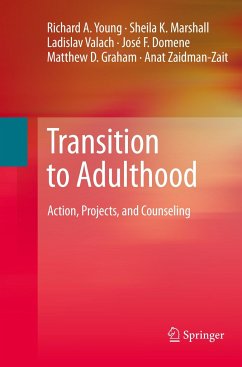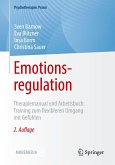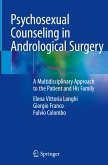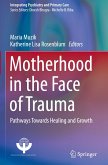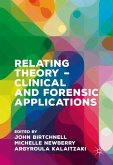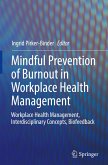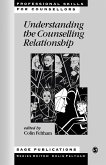The transition to adulthood involves, for most individuals, moving from school to work, establishment of long-term relationships, possibly parenting, and a number of other psychosocial transformations. Now more than ever, there is a concern within popular and research literature about children growing up too soon or too late or failing to realize changes associated with being adult. With this in mind, the book intends to answer a series of timely questions in regard to transition to adulthood and propose a wholly new approach to counseling that enables youth to engage fully in their lives and achieve their best.
Active Transition to Adulthood: A New Approach for Counseling will discuss the authors' work on the transition to adulthood (including early and late adolescence) from an entirely innovative perspective - action theory. Over a period of 10-15 years the authors have collected substantial data on adolescents and youth in transition, and will present an approach to counseling based on these data and cases. The action theory perspective in which the authors have grounded their work addresses the intentional, goal-directed behavior of persons and groups that is expressed through particular actions, longer-term projects, and life-encompassing careers. In this book, both transition to adulthood and counseling will be covered in the language of goal-directed action. In this way both transition and counseling reflect and capture the action, projects, and careers in which families, youth, and clients are engaged and use to construct on-going identity and other narratives.
Active Transition to Adulthood: A New Approach for Counseling will discuss the authors' work on the transition to adulthood (including early and late adolescence) from an entirely innovative perspective - action theory. Over a period of 10-15 years the authors have collected substantial data on adolescents and youth in transition, and will present an approach to counseling based on these data and cases. The action theory perspective in which the authors have grounded their work addresses the intentional, goal-directed behavior of persons and groups that is expressed through particular actions, longer-term projects, and life-encompassing careers. In this book, both transition to adulthood and counseling will be covered in the language of goal-directed action. In this way both transition and counseling reflect and capture the action, projects, and careers in which families, youth, and clients are engaged and use to construct on-going identity and other narratives.
From the reviews:
"Much research on youth focuses on general patterns within populations or subpopulations and is not very helpful for understanding - let alone helping - individual young people. This book provides a powerful new framework for understanding individual youth as they take on the tasks associated with becoming adults - identity, love, career, life style, and meaning. This framework (approach) helps us think about how these tasks are negotiated in daily contexts - and particularly in and through relationships with significant others.
Useful for both researchers and practitioners, this book could serve as an excellent text for a course on the transition to adulthood, adolescence, or related topics. It also includes excellent case examples that make the concepts/ framework tangible." - Reed W. Larson, University of Illinois, Urbana, IL
"This extraordinary team of authors brings remarkable insight and years of research to bear on the many facets of the dynamic transition to adulthood. The book attends to the very social nature of this transition by skillfully applying an action theoretical perspective to compelling case material. This masterfully written book is destined to become a landmark. It is intellectual and at the same time accessible. Brilliant!" - Donna Schultheiss, Cleveland State University, Cleveland, OH
"Richard Young and colleagues present an extremely restrictive, intellectualized, analytical model of psychological processes that occur during development. ... It is a conscious, purposeful attempt to devise a model of psychological functioning based on contemporary philosophical ideas and concerns. ... The literature reviews in the chapters illustrating the application of action theory to various realms (e.g., relationships, career, suicide) are well researched and informative. This book would be most appreciated by academics and scholars interested in thecentral subject matter and associated philosophies." (Judith Kingstone, PsycCRITIQUES, Vol. 56 (40), October, 2011)
"Much research on youth focuses on general patterns within populations or subpopulations and is not very helpful for understanding - let alone helping - individual young people. This book provides a powerful new framework for understanding individual youth as they take on the tasks associated with becoming adults - identity, love, career, life style, and meaning. This framework (approach) helps us think about how these tasks are negotiated in daily contexts - and particularly in and through relationships with significant others.
Useful for both researchers and practitioners, this book could serve as an excellent text for a course on the transition to adulthood, adolescence, or related topics. It also includes excellent case examples that make the concepts/ framework tangible." - Reed W. Larson, University of Illinois, Urbana, IL
"This extraordinary team of authors brings remarkable insight and years of research to bear on the many facets of the dynamic transition to adulthood. The book attends to the very social nature of this transition by skillfully applying an action theoretical perspective to compelling case material. This masterfully written book is destined to become a landmark. It is intellectual and at the same time accessible. Brilliant!" - Donna Schultheiss, Cleveland State University, Cleveland, OH
"Richard Young and colleagues present an extremely restrictive, intellectualized, analytical model of psychological processes that occur during development. ... It is a conscious, purposeful attempt to devise a model of psychological functioning based on contemporary philosophical ideas and concerns. ... The literature reviews in the chapters illustrating the application of action theory to various realms (e.g., relationships, career, suicide) are well researched and informative. This book would be most appreciated by academics and scholars interested in thecentral subject matter and associated philosophies." (Judith Kingstone, PsycCRITIQUES, Vol. 56 (40), October, 2011)

